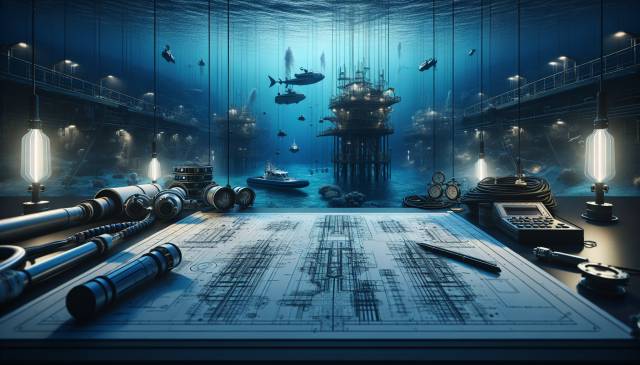
Welcome to the fascinating world of ocean engineering, a field that not only captures the imagination but also plays a crucial role in addressing some of the planet's most pressing challenges. Whether you are a student considering your future career or a professional looking to expand your knowledge, this guide will provide you with valuable insights into this unique discipline.
What is Ocean Engineering?
Ocean engineering is a multidisciplinary field that combines principles of engineering, marine science, and environmental studies to design, construct, and maintain structures and systems that operate in or near the ocean. This includes:
- Offshore platforms
- Submarine pipelines
- Coastal protection structures
- Marine renewable energy systems
- Underwater vehicles and robotics
The Importance of Ocean Engineering
With over 70% of the Earth's surface covered by water, oceans are vital for biodiversity, climate regulation, and global economies. Ocean engineers work on projects that:
- Support sustainable fishing and aquaculture
- Facilitate marine transportation and shipping
- Enhance coastal resilience against climate change and erosion
- Develop renewable energy sources, such as wave and tidal energy
- Contribute to marine research and exploration
Career Opportunities in Ocean Engineering
A degree in ocean engineering opens the door to numerous career paths, including:
- Design engineer
- Project manager
- Research scientist
- Marine surveyor
- Environmental consultant
These roles often involve collaboration with other professionals such as ecologists, geologists, and policy makers, highlighting the interdisciplinary nature of ocean engineering.
Educational Pathways
To embark on a career in ocean engineering, aspiring students typically pursue degrees in fields such as:
- Ocean Engineering
- Marine Engineering
- Civil Engineering
- Environmental Science
- Mechanical Engineering
Many institutions offer specialized programs focusing on ocean engineering, which cover essential topics such as fluid dynamics, structural analysis, and marine ecology.
Online Learning Opportunities
For those looking to enhance their skills or explore ocean engineering from the comfort of their home, numerous online courses are available. These courses provide flexibility and can cater to various levels of expertise:
- Basic Ocean Engineering: Ideal for beginners wanting an overview.
- Advanced Marine Structures: Focuses on the design and analysis of marine systems.
- Renewable Ocean Energy: Explores sustainable energy solutions from the sea.
Many of these courses are offered by renowned institutions and provide valuable certifications to enhance your qualifications.
Challenges in Ocean Engineering
As exciting as ocean engineering is, it comes with its own set of challenges. Some of the most pressing issues include:
- Environmental impact assessments
- Technological limitations in harsh marine environments
- Regulatory compliance and safety standards
- Climate change and its effects on marine ecosystems
Addressing these challenges requires innovative thinking and collaboration across various fields of study.
The Future of Ocean Engineering
The future of ocean engineering looks promising, with advancements in technology paving the way for more efficient and sustainable practices. Innovations such as:
- Artificial intelligence in marine research
- Autonomous underwater vehicles
- Advanced materials for marine structures
are set to revolutionize how we interact with our oceans. As climate concerns heighten, ocean engineers will play a pivotal role in developing solutions that protect marine environments while meeting human needs.
In conclusion, ocean engineering is a dynamic field that combines passion for the oceans with technical expertise. As you consider your educational path, remember that this discipline not only offers a fulfilling career but also contributes significantly to the health of our planet. Dive into this exciting world, and let your journey begin!

